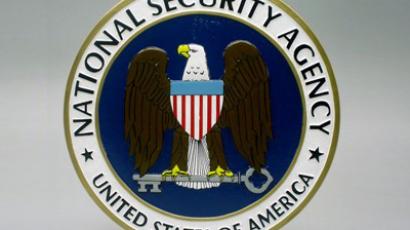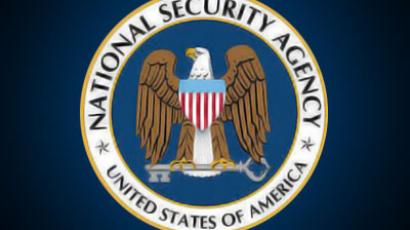Senate extends warrantless wiretapping under FISA

The Senate agreed on Friday to approve an extension of the Foreign Intelligence Surveillance Act, legislation that allows the NSA and other US intelligence agencies to wiretap conversations involving foreign citizens without obtaining a warrant.
Despite growing opposition to one of the most notorious and secretive US spying programs, the Senate voted 73-23 early Friday to reauthorize the Foreign Intelligence Surveillance Act, or FISA.First signed into law in 1978, FISA prescribes how the US government collects intelligence from foreign parties that may be detrimental to national security. Of particular significance, however, is the FISA Amendments Act of 2008, or FAA, which includes a provision that puts any US citizen engaged in correspondence with a person overseas at direct risk of being spied on.Under the FAA, the government can eavesdrop on emails and phone calls made or received by Americans, as long as they reasonably suspect those conversations to include at least one person residing outside of the United States. In May 2012, Senators Ron Wyden (D-OR) and Mark Udall (D-CO) sent a letter to the National Security Agency asking for an estimate on just how many Americans have been targeted since the FAA went on the books. In response, Inspector General I. Charles McCullough replied that honoring their request would be “beyond the capacity” of the office, and that “dedicating sufficient additional resources would likely impede the NSA’s mission.”“All that Senator Udall and I are asking for is a ballpark estimate of how many Americans have been monitored under this law, and it is disappointing that the Inspectors General cannot provide it,” Sen. Wyden told Wired’s Danger Room back in June. “If no one will even estimate how many Americans have had their communications collected under this law then it is all the more important that Congress act to close the ‘back door searches’ loophole, to keep the government from searching for Americans’ phone calls and emails without a warrant.”On Thursday this week, Sen. Wyden echoed his concerns from earlier this year by warning that the threat to the Americans’ privacy "has been real and it is not hypothetical.”The law should not be "an 'end run' around traditional warrant requirements and conduct backdoor searches for American's communications,” he urged.Even though Sen. Wyden sits on the Senate Select Committee on Intelligence, he says he has been told next to nothing about how FISA is used to target Americans. During Thursday’s debate, though, the committee’s chairperson, Sen. Dianne Feinstein (D-California), rebuffed Wyden’s concerns."No one should think the targets are US persons," Feinstein said. "Thirteen members of the intelligence committee who have voted on this do not believe this is a problem."One person who did agree with Wyden’s concerns during Thursday’s debate was Sen. Rand Paul (R-Kentucky). The son of former presidential hopeful Ron Paul, the senator from Kentucky suggested that reauthorizing FISA would further relinquish what remains of the US Constitution."We allowed Congress and the courts to diminish our Fourth Amendment protection, particularly when our papers were held by third parties. I think most Americans would be shocked to know that the Fourth Amendment does not protect your records if they're banking, Internet or Visa records. A warrant is required to read your snail mail and to tap your phone, but no warrant is required to look at your email, text or your Internet searches. They can be read without a warrant. Why is a phone call more deserving of privacy protection than an email?"For proponents of FISA, though, renewing the act meant a necessary step in securing America’s role in the so-called war on terror. Senate Majority Leader Harry Reid (D-Nevada), who was instrumental in actually having the bill being brought before debate, attacked Sen. Paul’s stance and insisted that failing to act would allow America’s enemies the opportunity to attack."When the clock strikes midnight tomorrow, we will be giving terrorists the opportunity to plot against our country undetected. The senator from Kentucky is threatening to take away the best tools we have for stopping them,” Reid warned."We all remember the tragic Fort Hood shootings less than two years ago. Radicalized American terrorists bought guns and used them to kill 13 civilians. It is hard to imagine why the senator would want to hold up the Patriot Act for a misguided amendment that would make American less safe,” Reid said.The US House of Representatives approved the reauthorizing of FISA and the FAA in September, but the Senate had been unable to agree on renewing the acts until Friday morning. Earlier this month, in fact, Sen. Saxby Chambliss (R-Georgia) asked his colleagues on Capitol Hill to reauthorize FISA without holding any debates in the Senate in order to pass the bill before it expired. Had no action occurred before December 31, the warrantless wiretapping provisions would have eroded and the NSA would no longer be able to eavesdrop on Americans’ communications.Senator Reid responded by saying that FISA is “an important piece of legislation,” though “imperfect,” but nonetheless warranted a full-on debate in the Senate.Even before the Senate convened this week, the Obama administration already acknowledged that they favored reauthorizing FISA and the FAA. In 2008, then-Senator Barack Obama voted in favor of FISA and the FAA, but said his attorney general would “conduct a comprehensive review of all our surveillance programs, and to make further recommendations on any steps needed to preserve civil liberties and to prevent executive branch abuse in the future."Not only did that never happen, but the Senate rejected a series of amendments proposed this week that would have provided privacy safeguards for Americans under FISA.“Without Senate action these authorities expire in four days and that’s the reason the House bill is before us,” Feinstein said on Thursday. “That is why I urge my colleagues to vote no on all amendments.“There is a view of some that this country no longer needs to fear attacks — I don’t share that view.“President Obama must sign the bill before it officially is reauthorized for another five years.













